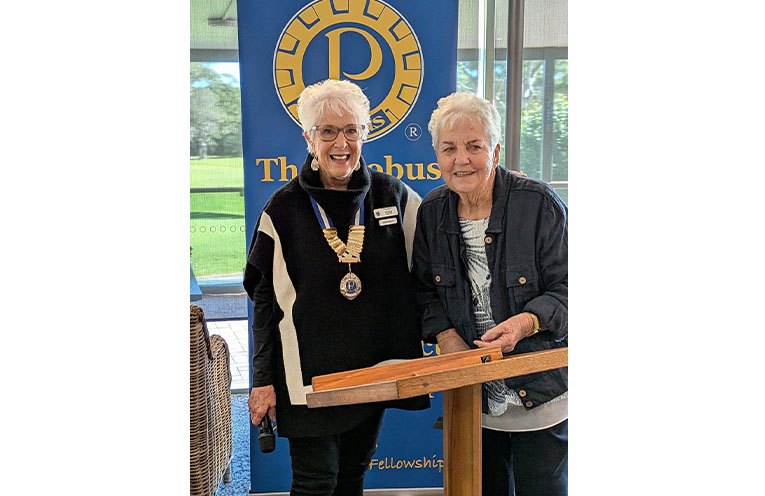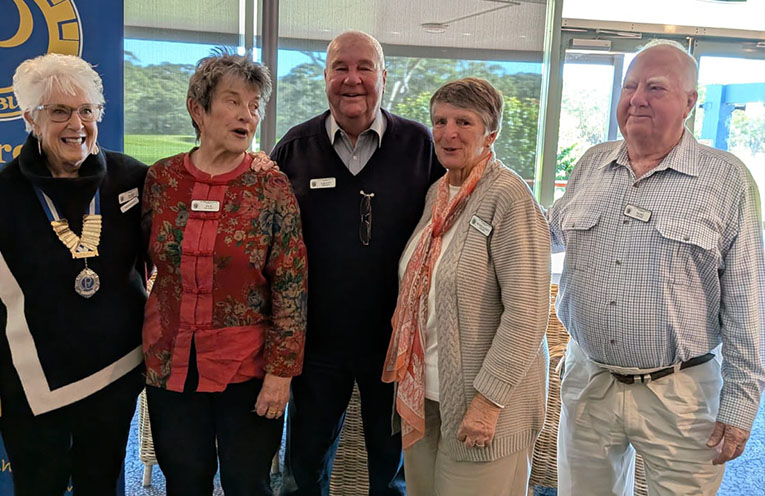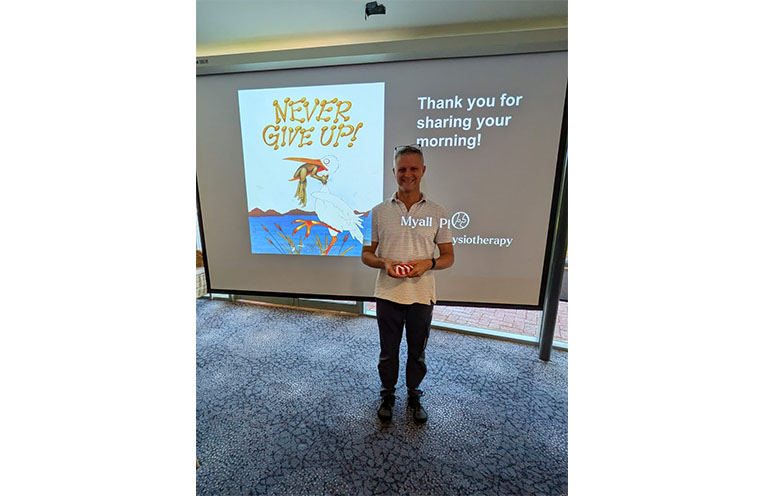Share via:
MEMBERS and visitors of the Hawks Nest and District Probus club braved capricious winter weather on 4 July to hear some important health-related insights.
After welcoming one new member, Lynne Bradbury, to the ever-growing social club, President Barb Smith proudly presented 10-year pins to four long-time members, Sue and Grant Hickey, and Margaret and Noel Jones.
It was then on to the monthly guest speaker: Alan Johns, from Myall Physiotherapy.
He was drafted to speak about everyday dangers such as avoiding falls, as well as continued healthy living.
With over 35 years in the world of physiotherapy, Alan has seen his share of injuries and rehabilitations, and now works exclusively through home visits.
“When senior citizens have a fall, the best thing they can do is to keep looking up, it’s the secret of life,” Alan said.
“In the aging process, the head tends to shift forwards, and downwards movements for older people are more problematic, as the resultant stooping shifts their centre of gravity too far forward, offsetting their centre of balance, making a fall that much more likely.”
One grim statistic was that one quarter of people 65 and over who suffer falls die within one year of the fall, but it was backed up by some practical dietary tips that can lead to healthier living – making falls and other age-related issues less final.
Alan, who also works to educate children on healthy living, then focused on what goes into the body, given we are what we eat.
“Around 70 percent of all food is carbs, carbs go to sugar, and then are stored as fat cells.”
“Insulin is a fat storage hormone that we need in order to unlock energy sugars stored in the body, and intermittent fasting reduces body fat around the middle.
Various other important bodily concepts surrounding the glycaemic index were discussed,, and the overpowering superiority of eating fresh foods versus processed foods.
Many considered getting out the tape measure when they were told “your waist measurement should be half your height.”
A relatively new revelation, and one backed by Diabetes Australia, is that Alzheimer’s Disease is now being likened to a “Type 3 Diabetes” – at least for any kind of Alzheimer’s that results from resistance to insulin in the brain.
According to Diabetes Australia, people suffering insulin resistance, in particular those with Type 2 Diabetes, have a 50 percent to 65 percent increased risk of suffering from Alzheimer’s disease.
By Thomas O’KEEFE
You can help your local paper.
Make a small once-off, or (if you can) a regular donation.
We are an independent family owned business and our newspapers are free to collect and our news stories are free online.
Help support us into the future.
Share via:





